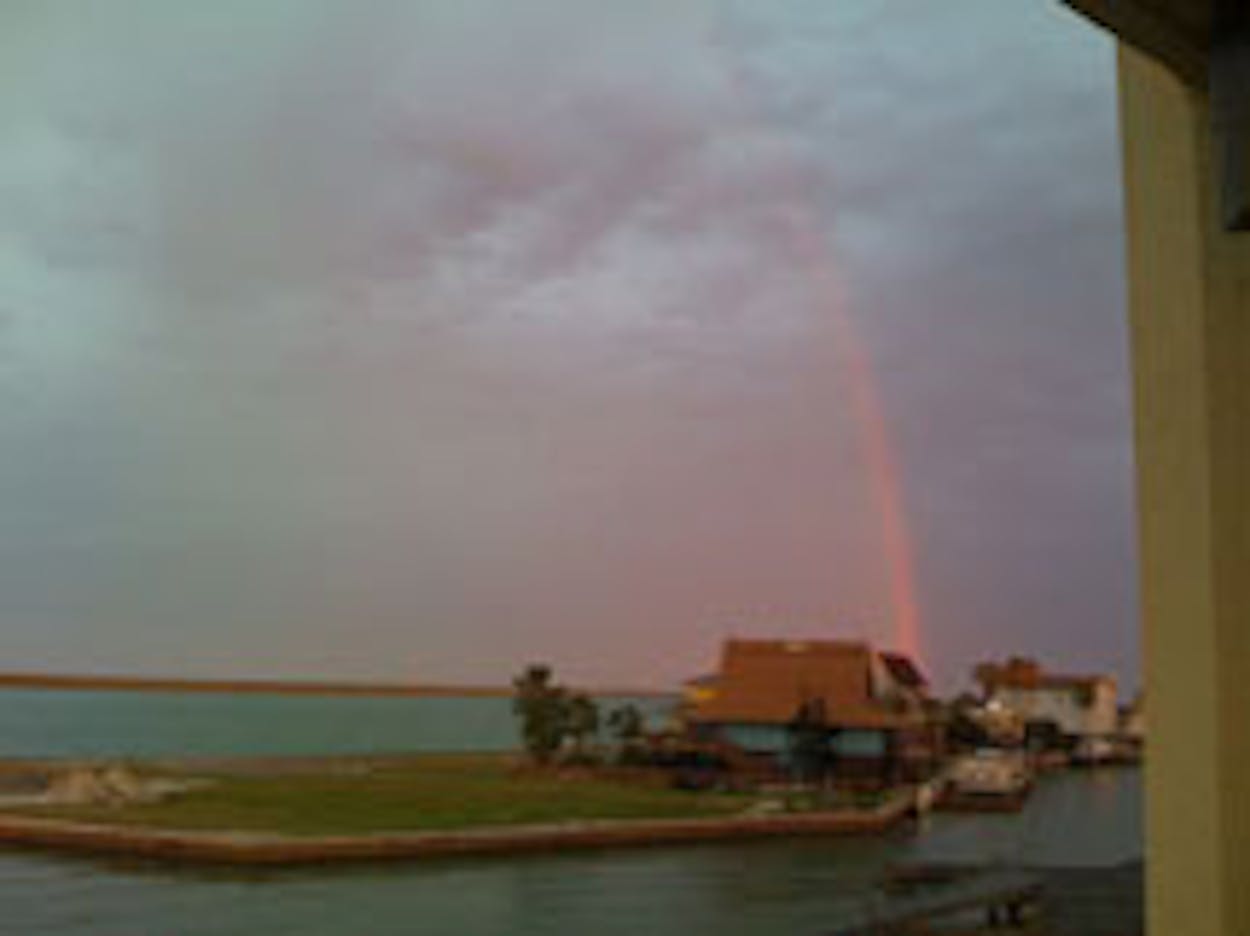I hop into the car to spend the night in San Antonio, my former home and still hometown. It’s late Thanksgiving evening and even now I am full. A day of corn-based, over-sucrosed food followed by waves of tryptophan-induced apathy.
After an hour on the road I am greeted on the outskirts of San Antonio by one of those newfangled high-def billboards. It hangs bright in the foggy night like an embrasure into an alternate future, another universe. But, like a character out of Blade Runner, I have already stepped across the threshold of the past into some bastardized underworld eternity. Unlike the ones Odysseus or Aeneas strode into, mine has much more in common with Dante’s, when he awoke in a dark wood wandering.
Dawn arrived warm and crystalline like a bottle of rum, clear, brilliant and sharp to the taste. A trio of mockingbirds cackle in the branches like gossips circling a water cooler.
I shower, grab my bags, and head south to the Texas Gulf Coast.
Clouds drift between the sun and blue like the broken paint stroke of an impressionist master. Live oaks litter the medians like giant green cotton candies. Yuccas push up from the rocky soil like porcupine ice cream cones. The brush country of South Texas is a blanket of World War II-era olive drab paint poured over a hard, unfathomable, broken land.
As I near the Coastal Bend the land changes. Clouds hang over the day like a great gray trench coat. Maroon tips of wild sorghum sway in the wet winds coming off the Gulf of Mexico. Oil derricks sit stationary, too expensive to maintain, the oil is still too cheap to pump.
Somewhere amidst the cactus patches, mesquite trees, and huisache bushes are those satyrs of South Texas legend: The big buck. He of the 16-inch spread and 14 points. But today they are hidden, or hiding. When the rut begins shots will ring out across the rattlesnake prairie like firecrackers on the Fourth of July.
I pull into a filling station. It’s Black Friday and even here, out in the emptiness of South Texas, the Christmas finery is on display. Did they hoist them up in the middle of the night, or were these holiday enhancements raised days before?
Between Mathis and Sinton—twin towns of mom and pop-run retail stores surrounding a brick or limestone courthouse now devastated by big box retailers—there is no cotton. The fields, parched into cracked wastelands like a dried lakebed this past summer, are empty of even a trace of the annual cotton crop. Herons and cattle egrets have fled elsewhere. I look out on a land fecund but denuded of life. And the fields now aren’t dry for they languish under inches of water that rotted what little cotton might have been harvested. Empty. Soggy. Hoping next year will be better.
I recall early memories of the Coastal Bend, white memories of cotton. Cotton balls litter fields like they were casually dumped from antique B-52s. And along the roads were huge bales, like those Andrew Jackson used at the Battle of New Orleans, only the ones fading in my memories were towed by big rigs towards the urban, commercial markets gone now.
Is this my first memory of Texas?
No.
That is reserved for the Hill Country, an almost alien place to me now but still alive in my memories. A landscape of lush green Hill Country springs. Little more than four or five years old my father took me fishing in a creek outside of San Antonio off Highway 16 on the way to Bandera. Rocky limestone bluffs and cedars that would one day drive me and my allergies to misery were followed by clear, green creek waters and fire truck red crayfish, or as my father called them, “crawdads.” I recall pulling in several perch. My father snagged a bass. Another embrasure into an alternate reality.
A rainbow disrupts my thoughts, slicing through leaden skies like a multi-colored scythe. Depositing the promise of gold, or wealth, over cattails and sloughs.
The car cruises past a giant distillery rising above prickly pear cactus flats. Overgrown, the refinery sprawls, like its very own exurbia on the Coastal Plain, a forest of fire-breathing forecastles sailing over the empyrean plain.
And then an incongruity. A scene from a Dutchmen’s nightmare: Hundreds and hundreds of giant, swinging, circling, and moaning windmills. A wind farm pastiche on a refinery background.
It’s not even so much an incongruity as it is rich irony, a perfect satire perpetrated on a people in the arms of Morpheus.







